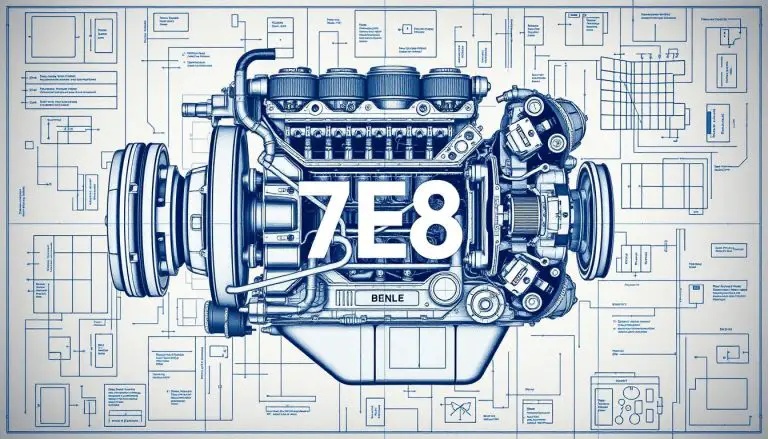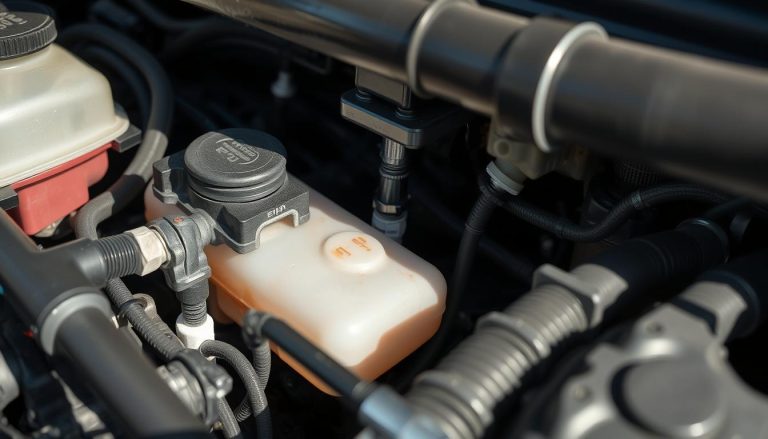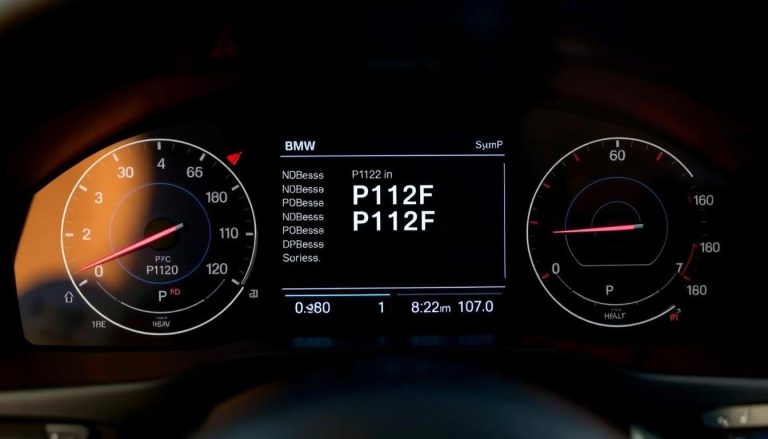If you’re a car enthusiast or simply someone who relies on their vehicle for daily commuting, encountering diagnostic trouble codes (DTCs) can be a headache. One such code that may pop up is the P0378 code, signaling an issue related to your timing reference high resolution signal B.
This might sound technical and intimidating, but understanding this code is crucial for keeping your engine running smoothly. In this blog post, we’ll delve into what the P0378 code means, its causes and symptoms, and how you can effectively diagnose and repair it.
What does the P0378 code mean?
The P0378 code is a specific diagnostic trouble code that indicates an issue with the timing reference high-resolution signal B. This signal plays a crucial role in engine management, helping to synchronize various components for optimal performance.
When your vehicle’s onboard computer detects erratic or intermittent pulses from this signal, it triggers the P0378 code. Essentially, it means something isn’t quite right in how the engine is receiving or interpreting these signals.
This can lead to problems such as poor engine performance and increased emissions. It’s important to address this issue promptly to avoid further complications down the road. Understanding what this code signifies can empower you to take action before minor issues escalate into costly repairs.
What parts can be affected by P0378 code ?
The P0378 code can impact several critical components of your vehicle’s engine management system. One primary part is the crankshaft position sensor, which plays a vital role in monitoring engine timing and performance.
Another affected component could be the camshaft position sensor. This sensor works closely with the crankshaft position sensor to ensure that fuel injection and ignition timing are synchronized properly.
Additionally, wiring harnesses and connectors related to these sensors may also suffer from wear or damage. Poor connections or frayed wires can trigger erratic signals, leading to the P0378 code.
Issues with the Engine Control Module (ECM) itself might arise. If it misinterprets signals due to faulty inputs from either positioning sensor, diagnostics will point toward this error code as well.
What are the possible causes of a P0378 code?
The P0378 code can arise from various issues within your vehicle’s engine management system. One common culprit is a malfunctioning crankshaft position sensor. This part measures the position of the crankshaft, and if it fails to send accurate signals, erratic timing reference pulses may occur.
Wiring problems are also significant factors. Damaged or corroded wiring can disrupt communication between sensors and the Engine Control Unit (ECU). These disruptions often lead to intermittent signals that trigger the P0378 code.
Additionally, a faulty camshaft position sensor might be at play. This sensor helps synchronize fuel injection and ignition timing, so any errors here could directly impact performance.
Software glitches in the ECU itself can cause miscommunication between components. A simple update or recalibration might resolve this issue without needing extensive repairs.
What are the common symptoms of a P0378 code?
Drivers may notice several symptoms when the P0378 code triggers. One of the most common signs is a rough engine idle. This can lead to an uneven performance that feels unsettling while driving.
Another frequent symptom is reduced power during acceleration. You might find your vehicle struggling to reach higher speeds, making everyday driving frustrating and potentially dangerous.
In some cases, you could experience stalling or misfiring. These issues often occur unexpectedly and can leave you feeling uneasy about your car’s reliability.
The check engine light will likely illuminate on your dashboard as well. This warning signals that something isn’t quite right under the hood, prompting further investigation into the problem at hand.
If these symptoms arise, it’s essential to address them promptly to avoid more significant complications down the line. Ignoring them could lead to more severe damage or breakdowns while on the road.
What are the diagnostic steps for a P0378 code?
Diagnosing a P0378 code requires a systematic approach. Start by using an OBD-II scanner to retrieve the diagnostic trouble codes (DTCs) stored in the vehicle’s computer. Note any other related codes that may provide additional context.
Next, inspect the wiring and connectors associated with the timing reference signal. Look for signs of wear, corrosion, or loose connections that could lead to erratic signals.
Check the crankshaft and camshaft position sensors as they play crucial roles in generating these signals. Testing their functionality can reveal whether they’re contributing to the problem.
After visual inspections, consider conducting a voltage test on relevant circuits while monitoring live data from your scan tool. This helps pinpoint irregularities during engine operation.
If all else fails, consult service manuals specific to your vehicle model for advanced testing procedures tailored to address this particular code.
How serious Is the P0378 Code? Can I continue driving with the P0378 code?
The P0378 code indicates an issue with the Timing Reference High Resolution Signal B. This can lead to inconsistencies in engine performance. Ignoring it may result in further complications.
Driving with a P0378 code is not advisable. While you might not notice immediate problems, persistent erratic signals can affect overall vehicle operation. It could lead to stalling or difficulty starting your engine.
If left unaddressed, serious damage could occur over time. Components like the crankshaft and camshaft rely on proper timing signals for smooth operation. A failure here could leave you stranded unexpectedly.
It’s essential to prioritize repairs when this code appears. Early intervention can save money and ensure safety on the road. Don’t take chances; address any warning lights promptly for peace of mind while driving.
What are the repair solutions for a P0378 – Timing Reference High Resolution Signal B Intermittent/Erratic Pulses ?
Repairing a P0378 code often requires a thorough approach. Start by checking the wiring and connectors related to the timing reference signal. Look for frayed wires, loose connections, or corrosion that could disrupt proper function.
Next, inspect the crankshaft or camshaft position sensors. These components are crucial for sending accurate signals to the engine control unit (ECU). If they’re faulty, replacing them may resolve the issue.
Consider examining any related modules as well. Sometimes software updates can fix glitches causing intermittent pulses.
If these steps don’t yield results, it might be wise to run diagnostic tests with specialized equipment. This ensures you pinpoint other potential issues without unnecessary replacements.
Having an experienced technician assess your vehicle can also streamline repairs effectively. They bring expertise in identifying what’s amiss and how best to address it efficiently.
How long and How much does it cost to diagnose and repair a P0378 code?
The cost and time required to diagnose and repair a P0378 code can vary widely. On average, you might expect to spend between $75 and $150 for diagnostic services at an auto repair shop. This fee often includes reading the trouble codes and running initial tests.
Once diagnosed, repairs could range from simple fixes like replacing faulty wiring or connectors—costing around $100 to $300—to more complex solutions such as replacing the crankshaft position sensor, which might set you back up to $600.
Labor costs also factor in; rates typically range from $60 to over $120 per hour depending on your location.
Always consider obtaining multiple estimates before proceeding with any repairs, as prices can differ significantly among mechanics. Being informed helps ensure that you’re getting fair treatment without overspending on unnecessary work.
How can I avoid a P0378 code?
Preventing a P0378 code largely hinges on regular vehicle maintenance. Keep your engine well-tuned and promptly address any issues that arise.
Routine inspections of ignition components, such as spark plugs and coils, can prevent misfires that contribute to timing signal errors. Regular oil changes are also essential; old or contaminated oil can affect sensor performance.
Ensure all electrical connections related to the timing sensors are secure and free from corrosion. A clean environment for these components is crucial in avoiding erratic signals.
Using high-quality fuel helps maintain optimal engine performance. Poor fuel quality may lead to irregular combustion cycles, which can trigger fault codes like P0378.
Consider investing in diagnostic tools for early detection of potential problems before they escalate into major issues.
What happens if you ignore a P0378 code?
Ignoring a P0378 code can lead to serious engine issues. The timing reference signal plays a crucial role in your vehicle’s performance. If the system isn’t functioning correctly, it may cause erratic engine behavior.
You might notice reduced power or stalling while driving. These symptoms can worsen over time, making your vehicle less reliable.
Continuing to drive with this code could potentially damage other components of your engine. This includes the crankshaft and camshaft sensors, which are vital for maintaining proper timing.
Additionally, you may face escalating repair costs as minor issues develop into major failures. It’s often more economical to address problems early rather than wait until they become severe.
Ignoring warning codes also affects fuel efficiency. An inefficient engine consumes more gas, leading to increased expenses at the pump over time.
Is the P0378 code specific to certain car makes or models?
The P0378 code is not limited to just one or two car makes or models. It can appear in a variety of vehicles across different brands, thanks to the widespread use of similar engine management systems.
Manufacturers like Ford, GM, Chrysler, and Hyundai may experience this issue due to shared technology in their engines. However, the frequency and specific symptoms might vary from vehicle to vehicle.
Some models may exhibit more recurring problems with this code based on design flaws or component quality. Regular maintenance can play a significant role in preventing its occurrence.
If you own a vehicle known for common timing reference issues, staying informed about related recalls or updates could save you time and money down the line.
What other codes may be related to P0378?
When dealing with the P0378 code, it’s important to be aware of other codes that may surface alongside it. These related trouble codes can provide additional insight into your vehicle’s issues. Commonly associated codes include P0335 (Crankshaft Position Sensor Circuit Malfunction) and P0340 (Camshaft Position Sensor Circuit Malfunction).
Both involve critical sensors that share similar signals or functions as those affected by the P0378 code. Additionally, you might encounter codes like P0365 and P0366, which relate specifically to camshaft position sensors in certain vehicles.
Understanding these related codes can help pinpoint the problem more accurately during diagnosis. If you’re facing a check engine light along with a combination of these trouble codes, it’s advisable to address them all together for a thorough fix. This approach not only saves time but often leads to better long-term performance for your vehicle.
Being proactive about maintaining your car can greatly reduce instances of encountering multiple diagnostic trouble codes simultaneously. Remember that early intervention is key when it comes to automotive repairs; addressing issues promptly will keep you safe on the road and preserve your vehicle’s lifespan.


